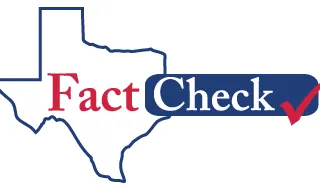Last week, the Court of Criminal Appeals issued a decision in the case of Ex Parte Robbie Gail Charette, which concerned the criminal enforcement of campaign and ethics disclosure laws that are also under the jurisdiction of the Texas Ethics Commission.
In a 6-3 opinion authored by Judge Michelle Slaughter, the majority of the Court of Criminal Appeals ruled that the Texas Ethics Commission must first issue a criminal referral to a prosecutor before a law under the Commission’s jurisdiction can be enforced criminally. A dissenting opinion by Presiding Judge Sharon Keller, joined by two other Judges, argued that prosecutors had the ability to pursue criminal charges for violations of the laws under the Texas Commission’s jurisdiction independent of any action by the Commission.
After the Court’s ruling was released, Texas Scorecard Publisher Michael Quinn Sullivan took to Twitter to blast it, alleging that it left Texas without enforceable election laws.
“In other words, we do not—functionally—have an enforceable election code 55 days out from the General Election. This 6-3 decision eliminates prosecution by ANYONE but the corrupt [Texas Ethics Commission],” wrote Sullivan.
Bo French, the Chairman of the Tarrant County Republican Party and a political ally of Sullivan, expressed similar concern about the effect of the Court’s ruling. In a tweet, French said, “So not only have they stripped @KenPaxtonTX from being able to prosecute election fraud, local prosecutors can’t either? We have to leave it up to the corrupt TEC? We are so screwed.”
The comments by Sullivan, French, and others about the Court’s ruling grossly misrepresent the effect it has on the ability of prosecutors to enforce criminal statutes involving election fraud, illegal voting, and other matters affecting the conduct of elections.
The Texas Ethics Commission has civil jurisdiction to enforce a narrow set of laws primarily concerning campaign finance and ethics disclosure matters. The civil jurisdiction conferred on the Commission allows it to impose financial penalties but not to bring criminal charges.
The ruling by the Court of Criminal Appeals is limited to specific laws that the Texas Commission has jurisdiction to enforce. The Commission does not have jurisdiction over and has never had jurisdiction over laws involving election fraud, illegal voting, or the administration of elections. The Court’s ruling does not have any impact whatsoever on the ability of a prosecutor to enforce laws against election fraud or illegal voting.
Additionally, the offenses the Commission has jurisdiction over (such as campaign finance reporting violations) are rarely prosecuted criminally.
In another tweet about the Court’s ruling, Sullivan peddled a conspiracy theory that Texans for Lawsuit Reform does not want secure elections. In the 2020 and 2022 general election cycles, Texans for Lawsuit Reform’s political arm spent approximately $18 million to help Republican candidates across Texas defeat their Democrat opponents.
“It’s almost like TLR wants our elections to be vulnerable to cheating,” said Sullivan.
The basis for Sullivan’s claim is that Texans for Lawsuit Reform supposedly “bankrolled” the campaign of Court of Criminal Appeals Judge Michelle Slaughter, who authored the majority opinion of the case.
While Texans for Lawsuit Reform did make a $15,000 donation to Slaughter’s unsuccessful re-election campaign in the Republican primary, the group also donated $15,000 to the campaign of Presiding Judge Sharon Keller- the author of the dissenting opinion. Like Slaughter, Keller was also defeated for re-election in the Republican Primary.
In addition to Texans for Lawsuit Reform’s significant support for Republican candidates in general elections, the organization’s leaders also helped finance a recent election contest lawsuit that exposed misconduct by the now-abolished Harris County Election Administrator’s Office and illegal voting in Harris County during the 2022 general election.
While that election contest, filed by judicial candidate Erin Lunceford, was not successful in overturning the results of her election, it did help lay the groundwork for another Harris County judicial candidate, Tami Pierce, to prevail in her election contest lawsuit that was tried a few months after Lunceford’s. Both Lunceford’s and Pierce’s election contest cases are currently being appealed.
While major donors to Texans for Lawsuit Reform, such as Houston businessmen Dick Weekley and Alan Hassenflu, donated to help pay for Lunceford’s election contest, Tim Dunn and Farris Wilks- the major donors behind the political network that Sullivan is a part of- do not appear to have financially supported Lunceford’s legal battle.







